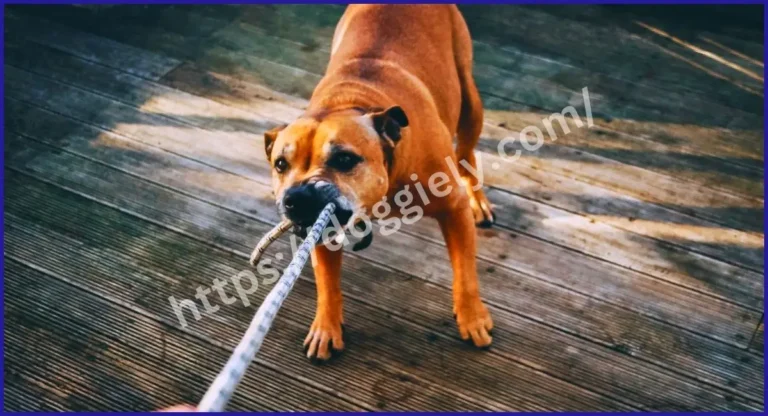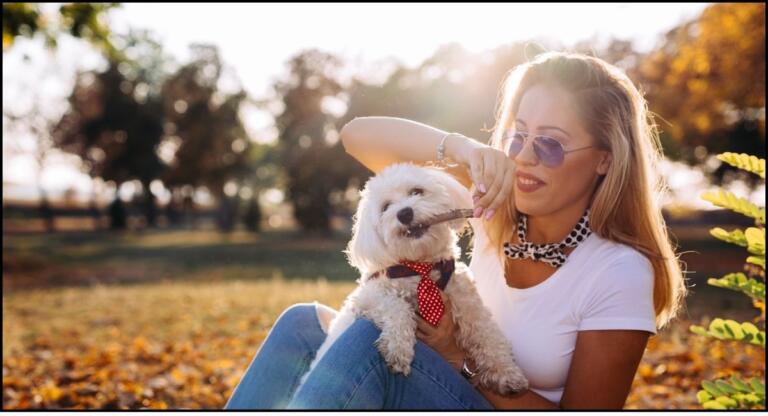why do dogs howl at night together? Top Reasons explained
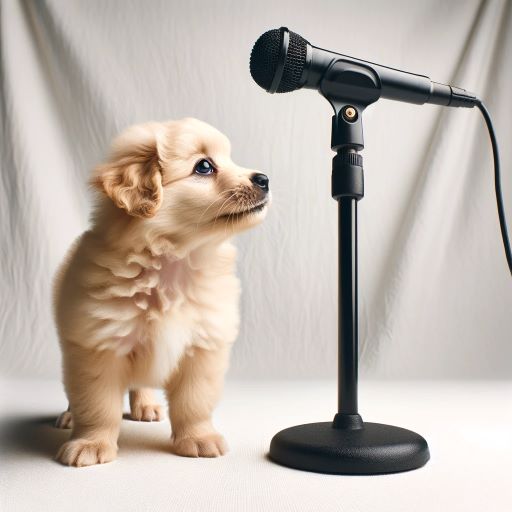
The stillness of the night is often pierced by a chorus of howls, a sound as eerie as it is ancient, echoing through neighborhoods and across the countryside. This nocturnal serenade, performed by our canine companions, has fascinated and sometimes unnerved humans for centuries. But have you ever stopped to wonder why do dogs howl at night together? This behavior, deeply ingrained in the psyche of our four-legged friends, is not just a remnant of their wild ancestors’ habits but a complex form of communication that serves multiple purposes in the canine world.
Understanding why dogs engage in this communal howling can offer us insights into their emotional and psychological state, their social structures, and their interaction with both their environment and the humans in their lives. The phrase “why do dogs howl at night together” is not merely a question of curiosity but a doorway to understanding the rich tapestry of canine behavior and social interaction. From signaling their presence to expressing distress, howling serves as a multifaceted language that dogs use to communicate with one another and, indirectly, with us.
In this comprehensive exploration, we delve into the heart of canine communication, examining the reasons behind this fascinating behavior. We’ll uncover the layers of meaning howling holds in the canine community, from its origins rooted in the wild to its manifestations in the domesticated dogs we share our homes with. Whether as a call to the pack, a response to environmental stimuli, or an expression of emotional states, each howl that slices through the night carries with it stories and messages, waiting to be understood.
As we embark on this journey to decode the mystery of why dogs howl at night together, we invite readers to view this behavior not as a mere nuisance but as a window into the complex emotional lives of dogs. By understanding the reasons behind their howls, we can foster a deeper bond with our canine companions, appreciating their rich emotional tapestry and the ancient instincts that still guide much of their behavior today. Join us as we explore the fascinating world of dog communication, uncovering the secrets behind their nocturnal concerts and what it tells us about our beloved pets.
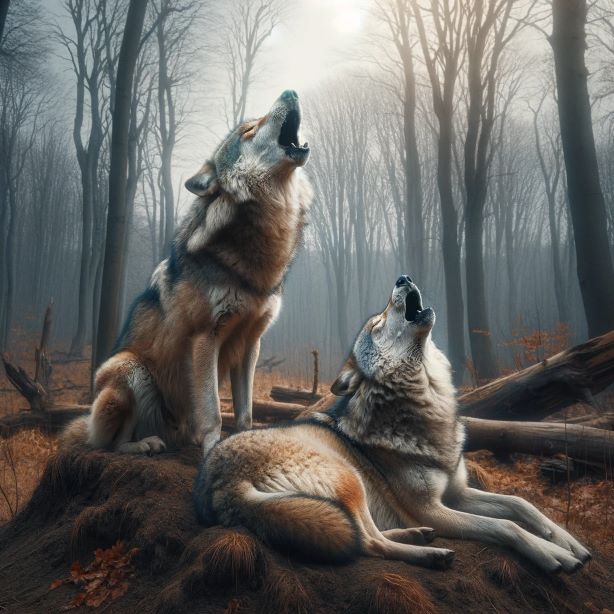
Understanding Dog Howling
Dog howling is a multifaceted behavior that taps into the deep evolutionary roots of our canine friends. This form of vocal communication is not only a link to their ancestral past but also a complex behavior that serves various functions within the context of their lives today. By delving into why dogs howl at night together, we uncover layers of canine psychology, social structure, and environmental interaction that illuminate the intricate world of dog behavior.
Evolutionary Background and Social Communication
The propensity for dogs to howl, particularly at night, can be traced back to their ancestors — the wolves. Wolves use howling as a primary form of communication across long distances, to rally the pack, mark territory, or signal distress. Domestic dogs have inherited this vocal trait, which remains a powerful tool for expressing themselves. Understanding why dogs howl at night together requires a look into this primal instinct that strengthens social bonds within the pack. Whether due to loneliness, excitement, or the simple desire to communicate with their canine companions or human family, howling at night serves as a bridge between domestic dogs and their wild counterparts.
Howling as a Response to Environmental Stimuli
One of the reasons why dogs howl at night together is in response to specific environmental stimuli. Nocturnal sounds, such as the sirens of emergency vehicles, other dogs howling in the distance, or even musical instruments, can trigger a communal howling session. This behavior is often contagious, with one dog’s howling setting off a chain reaction among others in the vicinity. This phenomenon showcases dogs’ acute auditory sensitivity and their instinctual urge to respond to what they perceive as calls from their pack or potential pack members. It’s a testament to their inherent social nature and their need to belong and communicate within a group.
Signaling and Emotional Expression
Exploring why dogs howl at night together also leads us to understand howling as a form of signaling and emotional expression. Dogs may howl to announce their presence, convey their emotional state — such as anxiety, excitement, or distress — or as a call to their family, seeking attention or companionship. Nighttime, with its quiet and stillness, amplifies the reach of their howl, making it an ideal time for dogs to express these needs. This behavior underscores the emotional depth of dogs, revealing how they use howling as a means to communicate complex feelings and desires.
Also Read: Why Do Dogs Like Peanut Butter?
Reasons Why Dogs Howl at Night Together
The phenomenon of dogs howling at night together is a subject of both intrigue and concern for many dog owners. This behavior, echoing from the ancient past of their wolf ancestors, serves various purposes in the canine world. Here, we explore the multifaceted reasons behind this communal vocalization, offering insights into the social and environmental triggers that inspire dogs to lift their voices to the night sky.
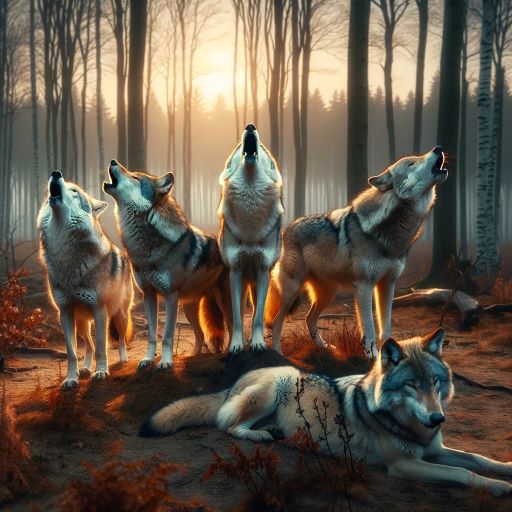
1. Pack Mentality and Communication
At the heart of nighttime howling lies the pack mentality that is intrinsic to dog behavior. Dogs, much like their wolf ancestors, are social animals that thrive on interaction with their pack members. Howling at night can be a form of communication that strengthens the social bonds within the pack. It serves as a call to assemble, allowing dogs to express their presence and reinforce their social connections. This behavior can be particularly noticeable in neighborhoods where multiple dogs may start howling in response to one another, creating a chain reaction of vocal communication.
2. Response to Environmental Triggers
Environmental triggers play a significant role in prompting dogs to howl together at night. Sounds that mimic the high-pitched tones of a howl, such as sirens, musical instruments, or even certain television frequencies, can initiate a communal howling session. Dogs’ acute hearing allows them to detect these sounds from afar, and their natural instinct is to respond in kind. This shared response to external stimuli is not only a testament to their sensitivity to their environment but also a reflection of their communal nature, where one dog’s reaction can influence others.
3. Territorial Presence
Howling serves as an auditory marker of territory, warning off potential intruders and signaling the presence of the pack. At night, when visibility is reduced, howling becomes an even more critical tool for communication. By howling together, dogs collectively assert their territorial claims, creating an auditory boundary that marks their domain. This behavior is a throwback to their wild ancestors, for whom territorial claims were vital for survival.
4. Separation Anxiety and Stress
For some dogs, howling at night can be a manifestation of separation anxiety or stress. When left alone or separated from their human families or canine companions, dogs may howl as a way of expressing their distress or attempting to reconnect with their pack. This behavior is more common in dogs that have strong attachments to their owners or those that are particularly sensitive to changes in their environment.
5. Seeking Attention
Howling can also be a strategy employed by dogs to seek attention from their owners or other dogs. Dogs that have learned this behavior gets them attention, whether through being let inside the house or receiving comfort from their owners, may howl as a way to elicit a response. This behavior underscores the importance of understanding the underlying reasons for howling, as addressing the root cause can help manage excessive or undesired howling.
6. Illness or Injury
In some cases, dogs may howl due to illness or injury. Howling can be a sign of pain or discomfort, serving as a vocal expression of their suffering. It’s crucial for dog owners to be attentive to changes in their pet’s howling patterns, as it could indicate health issues that require medical attention.
Howling as a Sign of Illness or Injury
While exploring the multifaceted reasons behind the question, “Why do dogs howl at night together?” it’s crucial to consider howling not just as a form of social communication or territorial behavior but also as a potential indicator of illness or injury in dogs. This aspect of canine howling can often be overlooked, yet it holds significant importance in understanding the well-being of our furry companions.
Howling as an Expression of Discomfort
One of the reasons why dogs howl at night together might be linked to the expression of discomfort or pain. When a dog is suffering from an illness or injury, its instinctual response may include vocalizing its distress through howling. This behavior can be particularly pronounced at night when the household is quiet, and the dog may feel more isolated or anxious about its discomfort. The communal aspect of howling at this time could also be a cry for attention or help, not just from their human companions but also as a call to the pack for support.
Read more: Micro Bully: Introduction and Essential CARING TIPS for Owners
The Link Between Howling and Health Issues
Addressing “Why do dogs howl at night together?” requires a look into how certain health issues can trigger excessive howling. Conditions such as dementia in senior dogs, which can cause confusion and anxiety, or diseases that produce physical pain, are notable examples. These situations may lead a dog to howl as a way to communicate its confusion, fear, or pain. It’s a signal that, especially if there’s a sudden change in a dog’s howling behavior, should prompt pet owners to seek veterinary advice to rule out underlying health problems.
Recognizing the Signs
The key to understanding “Why do dogs howl at night together?” in the context of illness or injury lies in recognizing the signs that differentiate distress howling from other types. This includes observing changes in the pitch, frequency, or duration of howling, which may suggest that the dog is in pain or distress. Additionally, changes in behavior, appetite, or mobility accompanying the howling are critical indicators that the howling may be a sign of something more serious than social communication or environmental responses.
Read more: Best Dog Beds for Hairy dogs that Shed
The Impact of Nighttime Howling on Humans and Dogs
Understanding the effects of nighttime howling is crucial for fostering harmonious relationships between dogs and their human families, as well as ensuring the well-being of the canine companions themselves.
On Human Lives
Nighttime howling can significantly affect the quality of life for humans, particularly when it comes to sleep disruption. Continuous or sudden bouts of howling can lead to sleep disturbances for dog owners and even neighbors, potentially causing stress, irritability, and fatigue due to interrupted sleep patterns. This can be especially challenging in densely populated living environments, where the sound can easily travel and affect many people. Moreover, excessive howling might lead to tensions between neighbors or within communities, highlighting the need for understanding and effectively managing this behavior.
For individuals not accustomed to the nocturnal habits of dogs, the sound of howling at night might also be perceived as unsettling or ominous, triggering anxiety or fear in some cases. This reaction is deeply ingrained in human psychology, where howling, historically associated with wolves and the wilderness, evokes primordial emotions.
On Canine Well-being
From the perspective of dogs, nighttime howling, especially when it stems from distress, anxiety, or health issues, indicates that their emotional or physical needs may not be fully met. For dogs suffering from separation anxiety or those that are not well-socialized, howling at night can be a manifestation of their stress, signaling the need for comfort, security, or medical attention.
Read more: How To Stop My Puppy From Biting When Excited
Furthermore, dogs that howl excessively at night might face repercussions from their human families, ranging from scolding to more severe measures if the behavior is not understood or properly managed. This can lead to a cycle of stress and anxiety for the dog, exacerbating the problem and affecting their overall well-being.
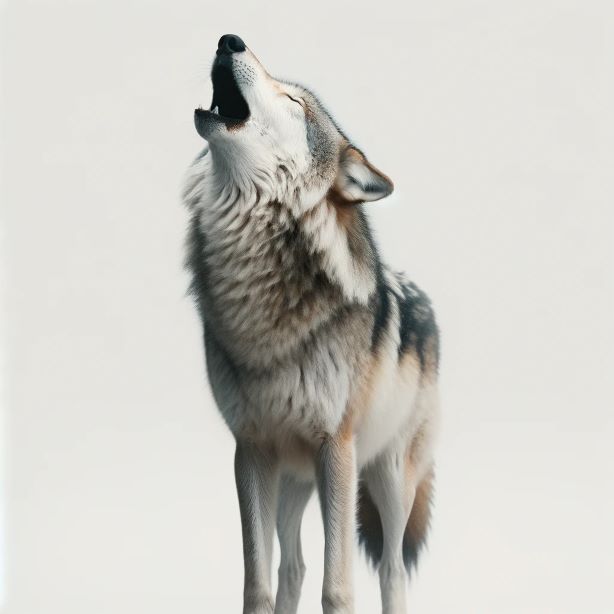
Managing and Reducing Nighttime Howling
Here are strategies and insights to help mitigate nighttime howling, ensuring a peaceful environment for everyone involved.
Establish a Comfortable Sleeping Environment
Creating a comfortable and secure sleeping environment for your dog can help reduce anxiety-related howling. Ensure your dog has a cozy bed in a quiet, warm area where they feel safe. Sometimes, leaving a light on or providing a piece of clothing that smells like you can comfort them and reduce feelings of loneliness or separation anxiety that might trigger howling.
Address Separation Anxiety
Separation anxiety is a common cause of nighttime howling. Gradually acclimating your dog to being alone, using positive reinforcement, and providing comfort items can help. Consider crate training if your dog finds security in a den-like space. Professional training or consultation with a veterinary behaviorist may be necessary for severe cases to develop a tailored behavior modification program.
Ensure Adequate Exercise and Mental Stimulation
A dog that is well-exercised and mentally stimulated during the day is less likely to howl out of boredom or excess energy at night. Ensure your dog receives appropriate physical exercise and mental stimulation through interactive toys, puzzles, or training sessions. A tired dog is more likely to have a restful night.
Implement a Consistent Routine
Dogs thrive on routine, and establishing a consistent nighttime routine can help minimize howling. This routine might include a quiet time before bed, a final bathroom break, and a set bedtime. Consistency helps signal to your dog that it’s time to wind down and rest, reducing the likelihood of nighttime disturbances.
Check for Medical Issues
Since howling can be a sign of discomfort or pain, it’s important to rule out any medical issues. Regular veterinary check-ups can ensure your dog is in good health or identify any conditions that may be causing distress. Addressing health issues can significantly reduce or eliminate howling caused by pain or discomfort.
Use Positive Reinforcement
Reward your dog for quiet behavior, especially during the night. Use treats, praise, or affection to reinforce silence as a positive behavior. Avoid punishing your dog for howling, as this can increase anxiety and potentially worsen the problem.
Read more: How often to brush dog teeth? Best Advice
conclusion
The question of why do dogs howl at night together? uncovers a rich tapestry of canine behavior that spans social, territorial, and environmental dimensions. This communal vocalization is more than just a nocturnal disturbance; it’s a window into the social lives of dogs, showcasing their need for connection, communication, and security within their community. By understanding the reasons behind this behavior, dog owners can better appreciate the complex social world their pets inhabit, fostering a deeper empathy and connection with their canine companions.
faq
What does it mean when dogs howl together at night?
When dogs howl together at night, it often signifies social bonding, communication, territorial marking, or response to environmental stimuli like sirens or other dogs howling.
What does it mean when a group of dogs howl?
A group of dogs howling indicates social cohesion, collective communication, or a communal response to external sounds, reinforcing their connections and territorial presence.
What does a dog howling mean spiritually?
Spiritually, a dog howling can symbolize deep intuition, alerts to unseen dangers, or a connection to the spiritual world, often seen as a call to pay attention.
Should I ignore my dog howling at night?
- Ignoring your dog howling at night without understanding the cause (e.g., anxiety, illness) can worsen the problem. Address underlying issues or consult a professional for advice.




